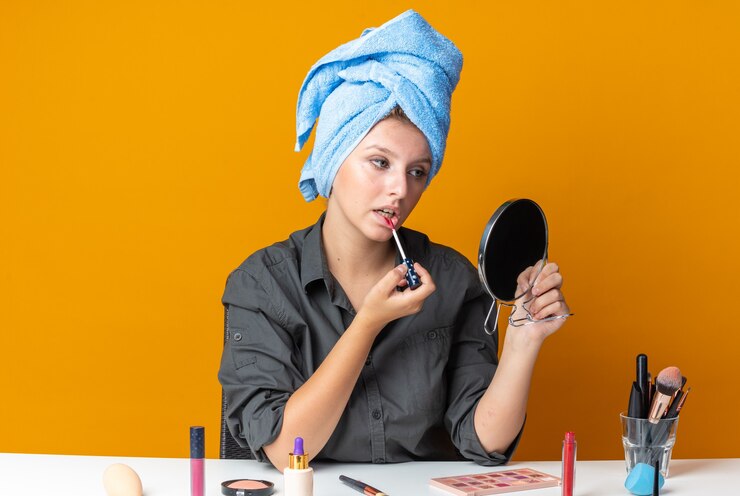Introduction to Oily Skin
Best Makeup Tips for Oily Skin is characterized by overactive sebaceous glands that produce excess oil, known as sebum. This natural oil is essential for keeping the skin hydrated and protected, but an overproduction can result in a shiny complexion, enlarged pores, and frequent breakouts.
Understanding the Challenges of Oily Skin
What causes oily skin?
Oily skin can be influenced by various factors, including genetics, hormonal changes, diet, and skincare habits. Individuals with oily skin often have larger sebaceous glands, leading to increased oil production.
Common issues associated with oily skin
- Acne and breakouts
- Enlarged pores
- Excessive shine
- Makeup breakdown
Importance of Makeup for Oily Skin
Makeup serves as a powerful tool for individuals with oily skin to control shine, minimize the appearance of pores, and achieve a matte finish. However, using the wrong products or techniques can exacerbate oily skin issues.
Essential Makeup Tips for Oily Skin
Choosing the right primer
A mattifying primer helps to create a smooth base and control oil production throughout the day. Look for oil-free formulas with ingredients like silica or dimethicone.
Selecting oil-free and mattifying foundation
Opt for oil-free, non-comedogenic foundations that offer long-lasting coverage without clogging pores. Matte and powder foundations work best for oily skin, providing a shine-free finish.
Using setting powder strategically
Apply a translucent setting powder to areas prone to shine, such as the T-zone, to lock in makeup and control oil breakthrough.
Opting for oil-absorbing blotting papers
Keep blotting papers on hand to quickly absorb excess oil without disturbing your makeup. Press the blotting paper gently onto oily areas for a matte, refreshed complexion.
Avoiding heavy cream-based products
Cream-based products can feel heavy on oily skin and contribute to clogged pores. Stick to lightweight, oil-free formulas for a natural, breathable finish.
Incorporating setting spray
Finish your makeup routine with a setting spray to help seal your look in place and extend its wear time. Look for formulas specifically designed for oily skin to control shine.
Skincare Routine Before Applying Makeup
A proper skincare routine lays the foundation for flawless makeup application. Cleanse, tone, and moisturize your skin to ensure a smooth canvas before applying makeup. Use a mattifying primer to control oil and minimize pores.
Makeup Application Techniques for Oily Skin
Light layers
Build your makeup gradually with light layers to avoid cakiness and ensure long-lasting wear. Focus on areas that tend to get oily, such as the forehead, nose, and chin.
Blotting technique
Use a blotting paper or tissue to gently blot away excess oil throughout the day, instead of adding more powder, which can look cakey.
Setting makeup with powder
Set your makeup with a light dusting of translucent powder to absorb excess oil and lock your look in place.
Avoiding excessive powder application
While setting powder is essential for oily skin, avoid over-powdering as it can accentuate dry patches and fine lines.
Product Recommendations for Oily Skin
- Primer: Benefit Cosmetics POREfessional Face Primer
- Foundation: Maybelline Fit Me Matte + Poreless Foundation
- Setting Powder: Laura Mercier Translucent Loose Setting Powder
- Blotting Papers: NYX Professional Makeup Blotting Paper
- Setting Spray: Urban Decay All Nighter Long-Lasting Makeup Setting Spray
Additional Tips for Managing Oily Skin
- Maintain a consistent skincare routine tailored to oily skin.
- Use oil-free and non-comedogenic skincare and makeup products.
- Blot away excess oil throughout the day to prevent makeup meltdown.
- Avoid touching your face to minimize transferring oil and bacteria to your skin.
Conclusion
In conclusion, achieving a flawless makeup look on oily skin requires the right products, techniques, and skincare routine. By choosing oil-free formulas, incorporating mattifying products, and practicing proper skincare, you can keep shine at bay and enjoy long-lasting makeup wear.
FAQs
- Can oily skin benefit from moisturizer?
- Yes, oily skin still needs hydration. Look for oil-free, non-comedogenic moisturizers to keep your skin balanced.
- How often should I touch up my makeup throughout the day?
- It depends on your skin’s oil production. As needed, use blotting papers to absorb excess oil and refresh your makeup.
- Are silicone-based primers suitable for oily skin?
- Silicone-based primers can help smooth the skin’s surface and control oil production, making them suitable for oily skin types.
- Can I use matte foundation on dry patches?
- Matte foundation can accentuate dry patches, so it’s essential to exfoliate and moisturize dry areas before applying makeup.
- Is it necessary to use a setting spray for oily skin?
- A setting spray helps to lock makeup in place and control shine, making it beneficial for oily skin, especially in humid environments.


